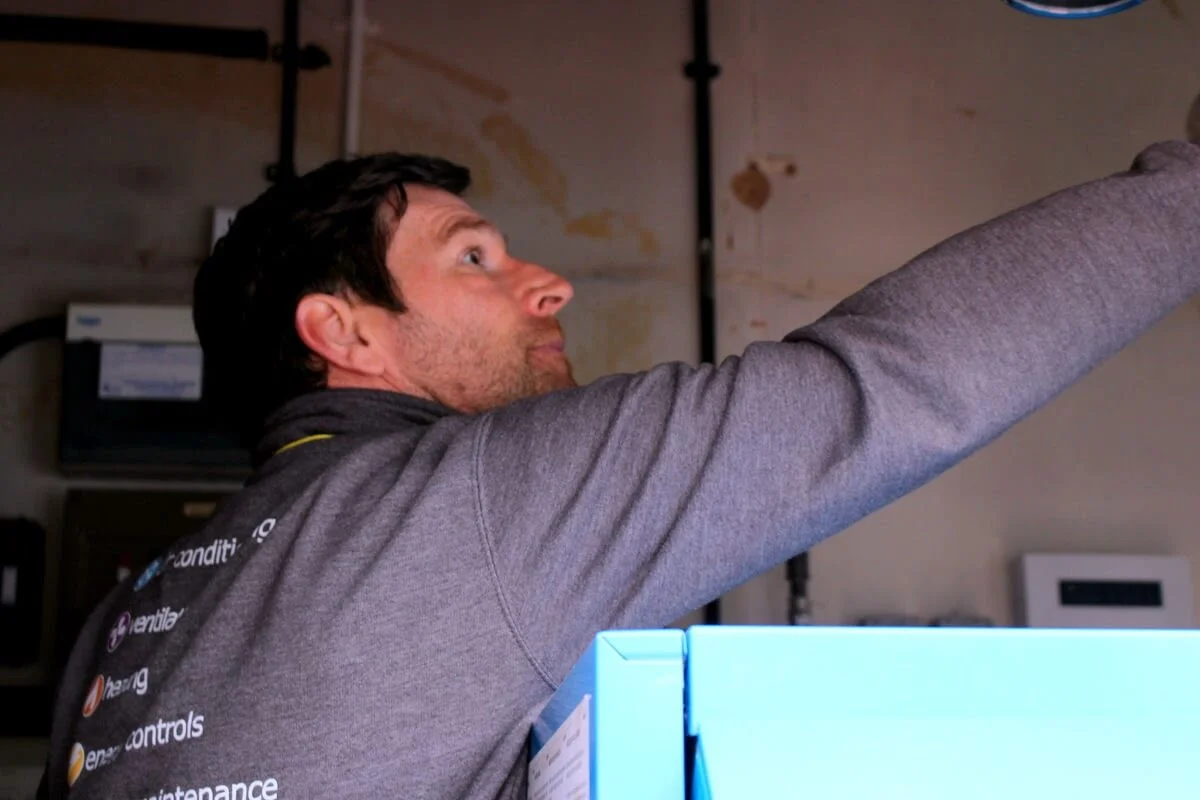When you’ve found a qualified engineer for a heating or air conditioning servicing visit, you might be wondering what to expect. Most visits are scheduled well in advance and involve a series of checks, designed to test both the safety and the efficiency of your system.
For emergency callouts, the process is less predictable, but 361 Servicing engineers are usually able to solve problems on the day, without the need to bring in other members of the team.
Heating Servicing
We spoke to Servicing Engineer Gavin Merry about his process, and some of the main things he looks for on a typical job. Always keen to keep the customer informed, he says his first act is to let people know what he’ll be doing, how much room it needs and whether any areas will be cordoned off.
He’ll then begin with tests of emergency control valves, and look for any signs that harmful carbon monoxide could escape the system. “The bottom line is observation; you’ve got to have your eyes open. I’ll look for any defects with the flue, test the gas tightness, and check there are no leaks anywhere around the building.”
Appliances themselves must also be closely examined for pressure and to ensure the ratio of air to gas conforms to manufacturer specifications. “Then we can analyse the products of combustion to make sure it’s not creating too much carbon monoxide,” Gavin adds.
From there, a variety of safety checks are carried out before all equipment is thoroughly cleaned and he reports back to the customer.
Air Conditioning Servicing
Similarly, an air conditioning maintenance visit involves safety checks as well as thorough cleaning. Systems that hold more than 3kgs of refrigerant must be serviced annually, but regardless of the size, regular checks will help improve air quality and prevent inefficiency.
Components such as fan blades and coils are individually cleaned. Dust builds up on filters, posing a health and operational risk, so these are replaced to ensure clean circulation of air.
An engineer will then check temperatures, assessing the difference between the room temperature and the air flow from the unit. This differential confirms whether the unit is working correctly and that there is no refrigerant leak. The engineer will then check the functions of the controller to ensure the unit responds correctly.
Combining Your Contracts
361 Servicing is part of the wider 361 Degrees group, which provides a complete range of mechanical services. Whether you need a partner to maintain heating, air conditioning, or both, we can design a contract to accommodate you. We also service fire equipment such as alarms and extinguishers, conduct water sampling and temperature checks to prevent harmful bacteria such as legionella, and provide fixed electrical and PAT testing.
By combining multiple services into one central contract you can reduce admin fees and get one contact for all mechanical equipment maintenance, so click below to get in touch with the team.






